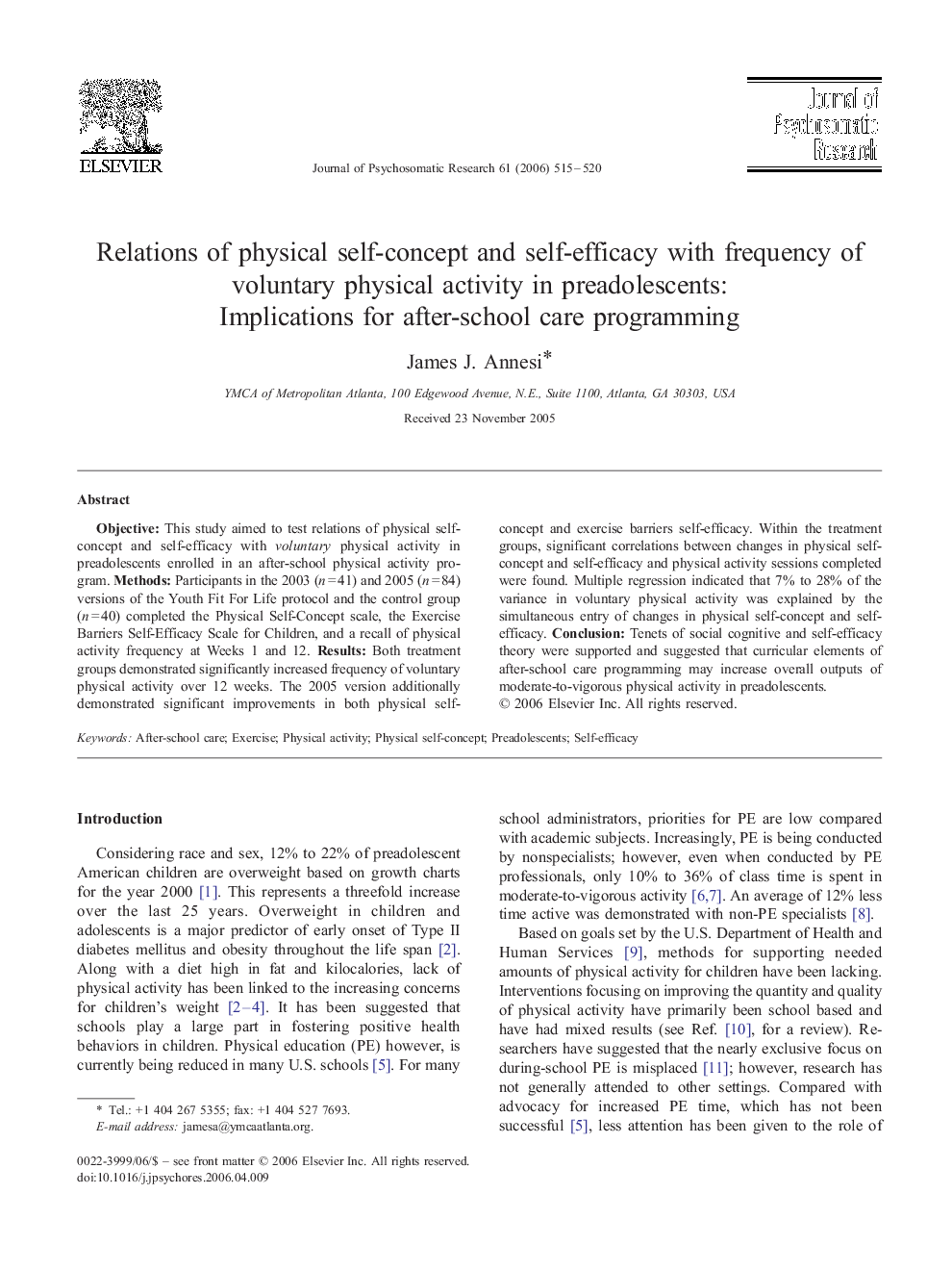| Article ID | Journal | Published Year | Pages | File Type |
|---|---|---|---|---|
| 950613 | Journal of Psychosomatic Research | 2006 | 6 Pages |
ObjectiveThis study aimed to test relations of physical self-concept and self-efficacy with voluntary physical activity in preadolescents enrolled in an after-school physical activity program.MethodsParticipants in the 2003 (n=41) and 2005 (n=84) versions of the Youth Fit For Life protocol and the control group (n=40) completed the Physical Self-Concept scale, the Exercise Barriers Self-Efficacy Scale for Children, and a recall of physical activity frequency at Weeks 1 and 12.ResultsBoth treatment groups demonstrated significantly increased frequency of voluntary physical activity over 12 weeks. The 2005 version additionally demonstrated significant improvements in both physical self-concept and exercise barriers self-efficacy. Within the treatment groups, significant correlations between changes in physical self-concept and self-efficacy and physical activity sessions completed were found. Multiple regression indicated that 7% to 28% of the variance in voluntary physical activity was explained by the simultaneous entry of changes in physical self-concept and self-efficacy.ConclusionTenets of social cognitive and self-efficacy theory were supported and suggested that curricular elements of after-school care programming may increase overall outputs of moderate-to-vigorous physical activity in preadolescents.
